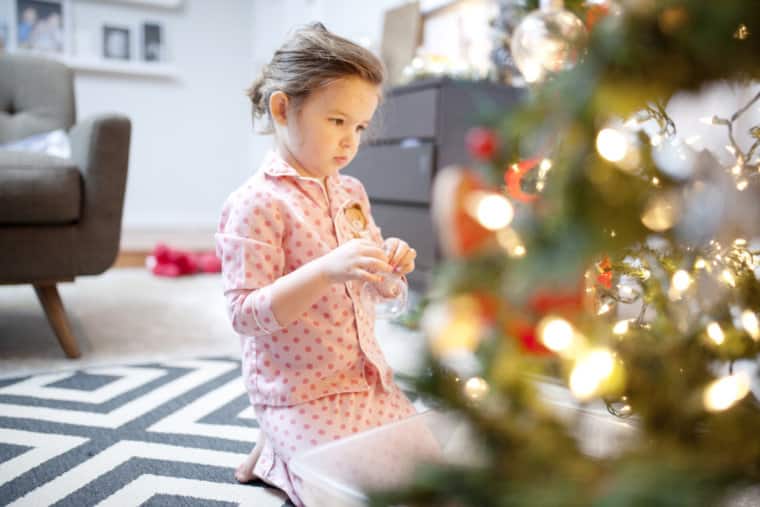I can’t believe that the shops started putting up Christmas decorations and playing Christmas carols at least a month ago. I always feel that it has come around too soon.
In Australia, Christmas coincides with the end of the working year and the summer holidays. It is often an intense time, even if you don’t celebrate Christmas.
Everything just seems to wind up into a big frenzy.
The truth is, despite how eagerly our children look forward to all those presents or feel that they will miss out because the family finances can’t stretch that far, or your family does not celebrate at this time of year, it is your presence that makes the real difference to them.

More than anything else, children need a sense of being “seen”, heard and understood. They need a sense that we are on their side. When we can regularly fill up their “cup of connection”, children’s capacity to be reasonable, flexible, generous, cooperative, get along with their siblings and relatives, share, and enjoy life is so much greater. All things which will make the end of the year and Christmas period go well!
Special Time is a great way to help children through busy periods when there are high expectations, excitement, busyness, lots of social interaction. So put on the timer, announce “This is Special Time!” and ask them what they want to do. I promise, a few minutes every now and again will make for a good “silly season” rather than a difficult one.
What happens when disappointments occur, despite your best efforts? Here is a story one mother from one of my classes told me early this year. It’s a lovely example of how she used Staylistening to offer her nephew her presence, at a time when presents were not what he really needed.
“I spent last Christmas with my brother’s family. I like to take the trouble to give people the right gift, and I had decided on a set of special pencils for my 8 year old nephew, Richard, who is a marvellous drawer. I had gone to a specialist art store to buy them, driving through a really bad storm, only to find that the store had got flooded, and I had to return another time to purchase them.
On Christmas day we all assembled in the morning to open presents. His brother, David, was delighted with the present I had given him, a skimboard, since they were about to head off on a beach holiday. But when it got to Richard, he looked at my present doubtfully, opened it, and though I could see that he was trying to be polite, he was really disappointed. Not long afterwards he disappeared.
I went to find him. He was shut in his room on his own and he would not let me in when I knocked. I sat down outside and said “I’m just going to stay here. I don’t want to leave you alone.” He said “I don’t care about you. Christmas is stupid anyway!”
I figured that he was disappointed about the pencils, and I had to suppress my irritation – I had gone to a fair bit of trouble to get those pencils for him! And he had got so much over the last few days, and some children got nothing.
But I remembered that Christmas can be pretty intense – everyone busy and distracted, lots of people around and things going on, high expectations of a “special” time, but also lots of requirements to “behave well”. And I’m not sure that getting lots of presents is actually all that easy on children – they often end up looking a bit overwhelmed. Looked at this way, Christmas time might just be one big opportunity to be disappointed!
So I “put a lid on” my feelings, held my tongue, and decided to listen to him. I said I was sorry he felt that way, and he said “It’s not fair, David gets all the good presents.” And threw something at the door. This went on for a while, and he seemed to be getting more and more disappointed “You only give me stupid presents. I didn’t want those pencils, they are stupid. I want you to go away.”
I was glad that I had learned that children need a chance to say all these things, and from experience I knew that once he had got them off his chest, he wouldn’t still feel this way. I trusted that if I gave him “freedom of the mouth”, and did not take it personally, then this storm would pass and he would have some fresh perspective on things. I decided not to take what he was saying personally. I was glad, though, that no-one else was in earshot, so I didn’t have to worry about what they might be thinking.
I kept saying “I’m sorry you feel like that, but I’m not going to leave you alone right now.” He moved on to telling more details of what was wrong with having an older brother, and what was wrong with his older brother. I didn’t rise to the argument: this was not his rational, calm, thoughtful self. This was a build-up of feelings from the whole year, and beyond.
After a while the strength of his feeling seemed to diminish. I had an idea. I wanted to figure out a way to get into the room with him, and not be stuck sitting outside (although I wasn’t doing badly at that!) I went and got some paper and the Christmas pencils. Using the pencils, I drew a love heart and slipped a corner of the paper under the door; he pulled it through. Progress! Contact made!
He scribbled a note back in biro “Go away”. I drew some red lips and wrote “kisses for you”. After a while back and forth, I asked if he wanted some pencils, and he opened to door a crack so I could hand the box through. A bit of time passed, and I sent him a note “Are you still there?” Then he sent me one back – a beautiful big heart, and the words “Thank you!”
After that I tried to get in the door, and we had a bit of a tussle, both laughing, with me just managing to get the door open a wedge, and him forcing it closed again. Then one time as I pushed, he gave way, and I fell into the room. He laughed and when I had picked myself up he gave me a big hug, and said “Let’s go back to Christmas.”
I was glad that I had not left him alone, or taken his insults or his disappointment personally. And I was glad that surrounded with presents, I had remembered to offer some “presence”, and let him offload some of the feelings getting in the way of enjoying this special occasion.”
A mother, Sydney, Australia
In the end, most of what we need to do as parents is connect with limit setting – with treading the right line between building and maintaining connection, and providing guidance and “correction.” It can be a tricky balance. The Hand in Hand Listening Tools make a big difference, giving you the framework to understand, and the tools you need to respond to, your parenting challenges. But the hardest thing is to be alone in trying to figure it all out.
Madeleine loves to help: why not book a Free 20Minute Consultation, and she can help direct you to the best resources and support.
